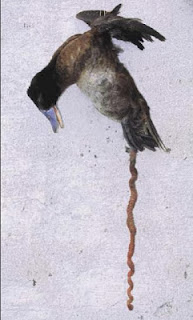http://www.dailymail.co.uk/sciencetech/article-1162130/Found-Skeleton-younger-sister-Cleopatra-murdered.html
New exciting proof that Cleopatra was of African descent and killed her sister!
Really?
 Forensic experts believe they have identified the skeleton of the queen’s younger sister, murdered over 2,000 years ago.
Forensic experts believe they have identified the skeleton of the queen’s younger sister, murdered over 2,000 years ago.ARCHEOLOGISTS and forensic experts believe they have identified the skeleton of Cleopatra’s younger sister, murdered more than 2,000 years ago on the orders of the Egyptian queen.
The remains of Princess Arsinöe, put to death in 41BC on the orders of Cleopatra and her Roman lover Mark Antony to eliminate her as a rival, are the first relics of the Ptolemaic dynasty to be identified.
 The breakthrough, by an Austrian team, has provided pointers to Cleopatra’s true ethnicity. Scholars have long debated whether she was Greek or Macedonian like her ancestor the original Ptolemy, a Macedonian general who was made ruler of Egypt by Alexander the Great, or whether she was north African.
The breakthrough, by an Austrian team, has provided pointers to Cleopatra’s true ethnicity. Scholars have long debated whether she was Greek or Macedonian like her ancestor the original Ptolemy, a Macedonian general who was made ruler of Egypt by Alexander the Great, or whether she was north African.Evidence obtained by studying the dimensions of Arsinöe’s skull shows she had some of the characteristics of white Europeans, ancient Egyptians and black Africans, indicating that Cleopatra was probably of mixed race, too. They were daughters of Ptolemy XII by different wives......























.jpg)






,+%E2%80%99+Vestnik.+Kostium.+(%E2%80%99Ippolit%E2%80%99)+%E2%80%99.jpg)



















